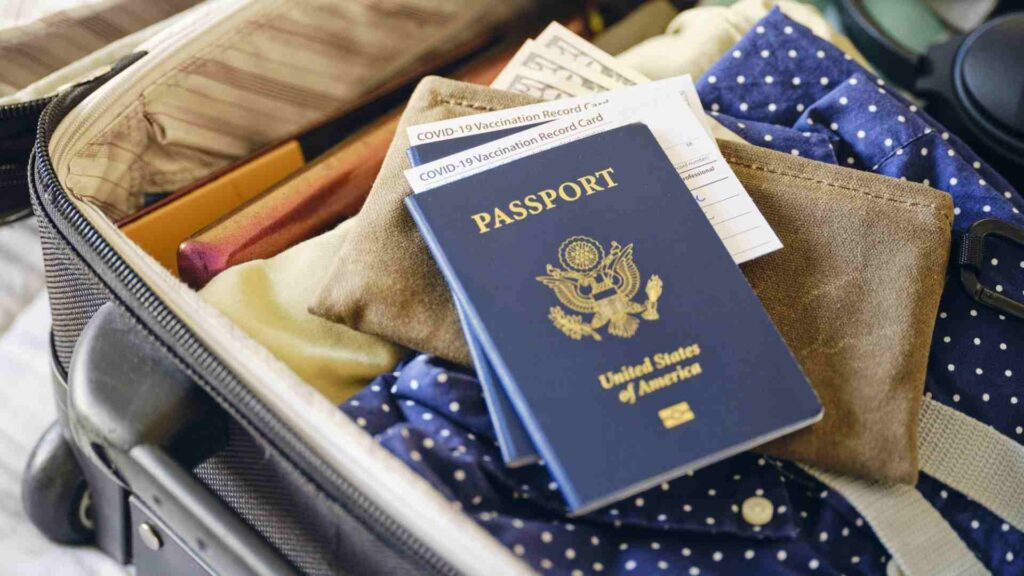Imagine you’re about to embark on an incredible journey, one that takes you thousands of miles away from home to study in a foreign land. The excitement is palpable, the anticipation is high, and the opportunities seem endless. But amidst all the exhilaration, there’s an underlying layer of uncertainty. What if something goes wrong? What if you fall ill or lose your luggage? That’s where travel insurance comes in.
But the question remains: Is travel insurance really necessary for students studying abroad? In this article, we will unravel the complexities of travel insurance, explore its importance, delve into its coverage, and guide you on how to choose the right plan. Whether you’re a student gearing up for a life-changing experience or a parent ensuring a safe journey for your child, this comprehensive guide is designed to navigate you through the intricate world of travel insurance for studying abroad.
Should I Get Travel Insurance for Study Abroad?

Travel insurance is a crucial aspect of studying abroad for several reasons:
- Health and Safety: It covers medical expenses if a student gets sick or injured, ensuring access to necessary healthcare without the burden of high costs.
- Mandatory Requirements: Some schools and countries require students to have travel insurance, making it a non-negotiable part of studying abroad.
- Protection from Unforeseen Events: Travel insurance can help with costs associated with trip delays, lost or stolen luggage, and other unexpected problems.
- Financial Security: It provides financial protection against risks that could lead to significant expenses, such as emergency repatriation or political crises.
- Continuity of Education: In case of study interruption due to illness or other emergencies, travel insurance can help manage the financial implications.
- Peace of Mind: Knowing they’re protected, students (and their families) can have peace of mind, focusing on the educational experience rather than potential mishaps.
Travel insurance is a wise investment for safeguarding the health, possessions, and educational journey of students abroad. It’s a critical component of planning for a secure and successful study experience in a foreign country.
What Does Travel Insurance Cover?
Travel insurance for students studying abroad typically covers a range of situations to protect against various risks. Here’s what a comprehensive travel insurance policy may include:
- Medical Expenses: Coverage for hospitalization, outpatient treatment, medical aid, and diagnostic tests due to illness or accidents.
- Emergency Repatriation: Costs for returning to the home country for medical reasons are covered.
- Trip Interruption: If you need to cut your trip short due to an emergency, insurance can cover the costs associated with it.
- Loss of Baggage: Compensation for lost, stolen, or damaged baggage during your travels.
- Personal Liability: Protection in case you’re held responsible for causing injury to a person or damage to their property.
- Study Interruption: If your studies are interrupted due to medical or other significant reasons, insurance may cover the financial losses.
- Maternity and Childcare Benefits: Some policies offer coverage for pregnancy-related expenses and childcare.
- Loss of Laptop: Compensation for the loss of a laptop or other essential study equipment.
- Sponsor Protection: If your sponsor suffers from a serious illness or injury, your policy may cover your tuition fees.
- Passport Loss: Assistance and coverage for expenses related to the loss of a passport.
- Travel Delays: If your flight is delayed or cancelled, causing you to miss a connecting flight or a pre-paid reservation, your travel insurance can cover the additional expenses.
- Accidental Death and Dismemberment: In the unfortunate event of a serious accident resulting in death or dismemberment, travel insurance can provide a lump sum payment.
It’s important to read the specific terms and conditions of the policy you’re considering, as coverage can vary between providers and plans. Always check for any exclusions and understand the claims process to ensure you’re adequately protected while studying abroad.
How to Choose the Right Travel Insurance Plan?
Choosing the right travel insurance plan for studying abroad can seem daunting, but it doesn’t have to be. Here are some tips to help you make an informed decision:
- Understand Your Needs: The first step is to understand what you need from your travel insurance. Are you going to participate in sports or adventurous activities? Do you have any pre-existing medical conditions? The answers to these questions will help determine what kind of coverage you need.
- Compare Different Plans: Don’t settle for the first plan you come across. Take time to compare different plans from various providers. Look at the coverage, limits, exclusions, deductibles, and premium costs.
- Check the Coverage: Make sure the plan covers what’s most important to you. This could include medical expenses, emergency evacuation, trip cancellation, lost luggage, and personal liability.
- Read the Fine Print: It’s essential to read the policy document carefully. Pay attention to the ‘exclusions’ section, which lists the situations the policy doesn’t cover.
- Consider the Provider’s Reputation: Check the insurance provider’s reputation. Look at their customer reviews and ratings, and consider their experience in the industry.
- 24/7 Assistance: Ensure that the insurance provider offers 24/7 assistance. When you’re in a different time zone, you want to be sure you can get help whenever you need it.
Remember, the cheapest plan may not always be the best one. It’s worth paying a bit more for a plan that offers comprehensive coverage and peace of mind. After all, the main goal of travel insurance is to protect you from unexpected financial burdens while you’re studying abroad.
Existing Insurance and Its Limitations
While you might already have some form of insurance, such as health insurance or homeowners insurance, these policies often have limitations when it comes to international coverage, especially for long-term stays like studying abroad. Here are some common limitations:
- Limited Overseas Coverage: Many domestic insurance policies provide limited, if any, coverage for incidents that occur overseas. They may not cover medical treatments in foreign hospitals or medical evacuation back to your home country.
- Coverage Duration: Some insurance policies may only provide coverage for short trips and may not cover long-term stays abroad, like a semester or a year of studying.
- Exclusions: Domestic insurance policies often have a list of exclusions that are not covered. These can include injuries from certain sports or activities that you might participate in while studying abroad.
- Deductibles and Out-of-Pocket Maximums: Your existing insurance may have high deductibles or out-of-pocket maximums, which means you could end up paying a significant amount before your insurance coverage kicks in.
- Lack of Travel-related Coverage: Domestic policies typically do not cover travel-specific incidents like trip cancellation, trip interruption, or lost luggage.
Because of these limitations, it’s often recommended to get a separate travel insurance policy designed specifically for studying abroad. These policies are tailored to the needs of students studying abroad and provide comprehensive coverage for a range of potential risks and incidents.
Cost of Travel Insurance
The cost of travel insurance can vary based on several factors such as the destination, duration of travel, age of the traveler, and the type of coverage chosen. Here are some key points:
- Average Cost: The average cost of travel insurance is typically around 5% to 6% of your total trip costs. For example, for a $5,000 trip, the average travel insurance cost is $228.
- Cost Range: Depending on your provider, travel insurance costs can range from 4%-16% of your trip cost. That means for a $1,000 trip, you might find coverage for as little as $40 or up to $160 on the high end.
- Cost in India: In India, travel insurance plans start at around ₹30 per day. The actual cost can vary based on the factors mentioned above.
- Factors Influencing Cost: The cost of travel insurance can be influenced by factors such as the traveler’s age, the duration of travel, the destination country, and the type of coverage chosen.
Remember, while cost is an important factor, it’s also crucial to consider the coverage provided by the insurance policy. It’s always a good idea to compare different travel insurance plans before making a decision.
Claim Process
The process of filing a travel insurance claim typically involves the following steps:
- Notify Your Insurer: As soon as you encounter an issue leading to a claim, contact your travel insurance provider. You can reach out to them on their website or through the helpline number.
- Gather Documentation: Collect all relevant documents to support your claim. This may include medical records, police reports, receipts, invoices, photographs, witness statements, and travel documents.
- Submit Claim: You can usually submit your claim online. Download the claim form from your insurance company’s website and submit your duly filled claim form along with other required/relevant documents via email.
- Claim Verification: Once you send in the documents, the insurance company will verify them with the policy coverage. If your claim is approved, they will send a payment letter guarantee to the healthcare provider within 2 working days.
- Claim Reimbursement: If your claim is denied, you can certainly file a claim for reimbursement at a later date. Collect all hospitalization-related documents and submit them, in original, to the insurance company. They will carry out a customary verification of all required documents. Upon receiving the requisite documents and further scrutiny, they will initiate the general insurance claims settlement process and release the payment via NEFT in an Indian bank account within 10 working days.
Can You Buy Travel Insurance After Booking A Flight?
Remember, each insurance company may have slightly different procedures, so it’s important to check with your specific provider for the most accurate information.
Is University Insurance Enough?
University insurance can provide a certain level of coverage, but it may not be comprehensive enough for all the situations you might encounter while studying abroad. Here are some reasons why:
- Limited Coverage: University insurance plans often cover basic health services on campus, but they may not cover other types of incidents like trip cancellation, lost luggage, or medical treatment abroad.
- Geographical Restrictions: Some university insurance plans may only provide coverage within the country where the university is located. If you’re studying abroad, you might need additional coverage for medical and travel-related incidents in the foreign country.
- High Deductibles: University insurance plans may have high deductibles, which means you’ll have to pay a significant amount out-of-pocket before the insurance coverage kicks in.
- Lack of Specialized Coverage: Studying abroad can present unique risks that are not typically covered by standard university insurance plans. For example, if you plan to participate in adventure sports or if you’re traveling to a region with specific health risks, you might need specialized coverage.
- Mandatory Insurance Requirements: Some study abroad programs or host countries require students to have a certain level of travel or health insurance coverage. In these cases, your university insurance might not meet these requirements.
Therefore, while university insurance is beneficial, it’s often recommended to get additional travel insurance when studying abroad. This can provide more comprehensive coverage and peace of mind during your overseas study experience.
FAQs
Q 1. Are pre-existing conditions covered in travel insurance?
Ans. Coverage for pre-existing conditions varies by policy. Some travel insurance policies may cover pre-existing conditions if the policy is purchased within a certain period after making the initial trip deposit. Always check the policy details.
Q 2. Does travel insurance cover COVID-19 related issues?
Ans. Some travel insurance providers have started offering coverage for certain COVID-19 related issues, like trip cancellation due to contraction of the virus or medical treatment if you fall ill during your trip. However, coverage varies greatly among providers, so it’s important to read the policy carefully.
Q 3. What factors affect the cost of travel insurance?
Ans. Several factors can affect the cost, including the length and destination of your trip, your age, the amount of coverage you want, and whether you have any pre-existing conditions.
Q 4. Can I get a refund on my travel insurance if I come back home earlier than planned?
Ans. This depends on the policy. Some travel insurance policies may offer a partial refund if you return home earlier than planned, but others may not. It’s important to check the terms and conditions of your policy.
Q 5. Does travel insurance cover mental health services?
Ans. Some travel insurance policies may provide coverage for mental health services, such as counseling or therapy sessions, while others may not. Always check the policy details.
Q 6. What should I do if my travel insurance claim is denied?
Ans. If your claim is denied, you should first understand the reason for denial by contacting your insurance provider. If you believe the claim was wrongly denied, you can file an appeal or dispute the decision with your insurance company.
Q 7. How soon should I buy travel insurance before my departure date?
Ans. It’s generally a good idea to purchase travel insurance soon after you’ve made your initial trip deposit. This is because some policies offer additional benefits if you purchase the insurance within a certain number of days after making your initial trip payment.
Conclusion
In wrapping up, travel insurance is a crucial aspect of studying abroad. It provides comprehensive protection against unforeseen circumstances, ensuring that your educational journey is secure and worry-free. While university insurance may offer some coverage, it often falls short of the extensive protection that a dedicated travel insurance policy can provide.
Therefore, investing in a suitable travel insurance plan is not just about safeguarding your financial investment; it’s about ensuring peace of mind so you can focus on what truly matters – your education and the unique experience of living and learning in a new country. Always remember, the right insurance coverage can make your study abroad experience smoother and more enjoyable.

Join Shubham, a finance enthusiast with a mission to empower readers with the knowledge and tools to achieve financial freedom. Discover smart financial advice and unlock your financial potential.


